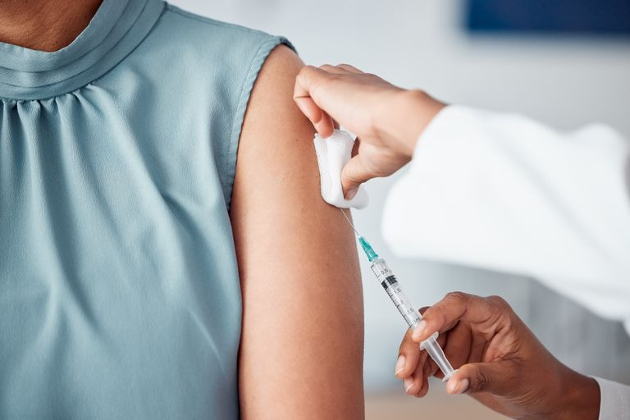Move FM Global News

US halts COVID vaccines for healthy kids, pregnant women
May 31, 2025WASHINGTON, D.C.: In a significant shift to federal vaccine guidance, the U.S. government will no longer recommend routine COVID-19 shots for healthy children and pregnant women — a decision announced directly by Health Secretary Robert F. Kennedy Jr. in a video posted on social media this week, bypassing the Centers for Disease Control and Prevention’s (CDC) traditional advisory process.
Kennedy, alongside FDA Commissioner Marty Makary and National Institutes of Health Director Jay Bhattacharya, confirmed that the COVID-19 vaccine has been removed from the CDC’s recommended immunization schedule for these groups. The update follows last week’s rollout of stricter criteria for vaccine eligibility, now focused primarily on older adults and people at risk of severe illness.
Traditionally, the CDC’s Advisory Committee on Immunization Practices (ACIP) meets and votes before any changes are made to vaccine recommendations. That process did not occur this time, prompting criticism from public health experts.
Kennedy, a longtime vaccine skeptic who now oversees the CDC, has been reshaping U.S. health policy in line with former President Donald Trump’s broader goal of reducing federal oversight.
“Last year, the Biden Administration urged healthy children to get yet another COVID shot despite the lack of clinical data to support repeat booster strategy in children,” Kennedy said in the video.
The CDC had previously recommended updated COVID-19 vaccines for everyone aged six months and older. Health insurers are now reviewing the regulatory shift to determine whether coverage policies — typically based on ACIP guidance — need to be revised.
A spokesperson for CVS Health said the company is assessing whether insurance changes are needed, while a Blue Cross Blue Shield Association representative noted that preventive health services, including COVID vaccines, remain essential to keeping patients healthy.
“The recommendation is coming down from the secretary, so the process has just been turned upside down,” said William Schaffner, a professor of infectious diseases at Vanderbilt University Medical Center and an ACIP consultant.
Schaffner noted that the CDC’s panel was already preparing to vote on the matter in June, with an expected shift toward more selective use of the vaccine rather than a blanket recommendation. “But this seems to be a bit preemptory,” he added.
Dorit Reiss, professor of law at UC Law San Francisco, wrote in a Facebook post that bypassing the advisory panel could weaken the CDC’s legal standing in case of future lawsuits.
Despite the change, the CDC’s website still affirms that vaccination during pregnancy is safe and beneficial. However, Makary claimed in the announcement video that there is no evidence supporting the need for routine COVID-19 shots in healthy children. Most countries, he said, have stopped recommending them for that group.
Vaccine manufacturers Moderna and Pfizer declined to comment.
Dr. Cody Meissner, a pediatrician at Dartmouth who co-authored an editorial with Makary during the pandemic opposing mask mandates for children, also backed the move. He argued that previous recommendations were overly political and that the virus appears to have become less severe in young children.


